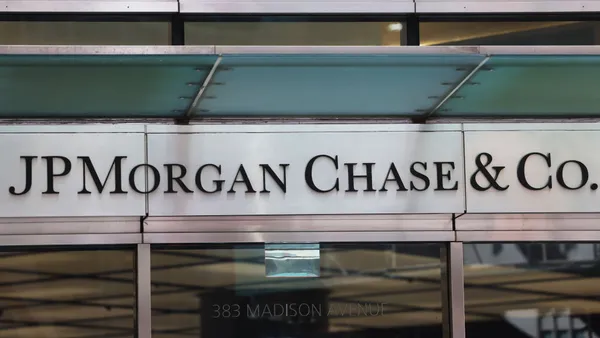Dive Brief:
- The Federal Deposit Insurance Corp. (FDIC) and the Office of the Comptroller of the Currency (OCC) on Tuesday approved a revamp of the Volcker Rule in an effort to clarify for lenders which trades are prohibited.
- The overhaul replaces the rebuttable presumption, which assumes short-term transactions held by banks are actually banned trades.
- The rewritten rule retains the ban on proprietary trading, in which banks make market bets with their own money. But regulators gave lenders extra flexibility on investing in private equity and hedge funds.
Dive Insight:
Trump appointees have been bullish in their attempts to roll back the Volcker Rule, which cracked down on risky trades after the 2007-08 recession. But banks — and even some regulators — have called the rule overly complicated.
"Distinguishing between what qualifies as proprietary trading and what does not has proven to be extremely difficult," FDIC Chair Jelena McWilliams said Tuesday in a statement. "Meanwhile, banks that do relatively little trading are required to go through substantial compliance exercises to ensure that activities that have long been considered traditional banking activities do not run afoul of the Volcker Rule."
To that end, regulators clarified the allowable limit for assets banks can hold in their market-making portfolios.
Volcker 2.0, as the rewrite is called, relies on the so-called market-risk prong as a bellwether of which transactions are prohibited among banks with more than $1 billion of trading activity. Larger banks are already using that standard, so the revamp may make it easier for them to judge the legality of a trade in real time.
CEOs of banks with more than $20 billion in trading activity must vouch for their institutions’ compliance, under the rewrite.
The changes take effect Jan. 1, 2020, but banks will have another year to comply.
Critics of the rewrite said the changes will introduce renewed risk into the financial system.
Martin Gruenberg, the former FDIC chairman who now sits on the regulator’s board of directors, is among the rewrite’s chief detractors. "The Volcker Rule will no longer impose a meaningful constraint on speculative, proprietary trading by banks and bank holding companies benefiting from the public safety net," Gruenberg said, according to Bloomberg.
The Federal Reserve, the Securities and Exchange Commission and the Commodity Futures Trading Commission also must approve the overhaul. That is expected in the coming weeks.












